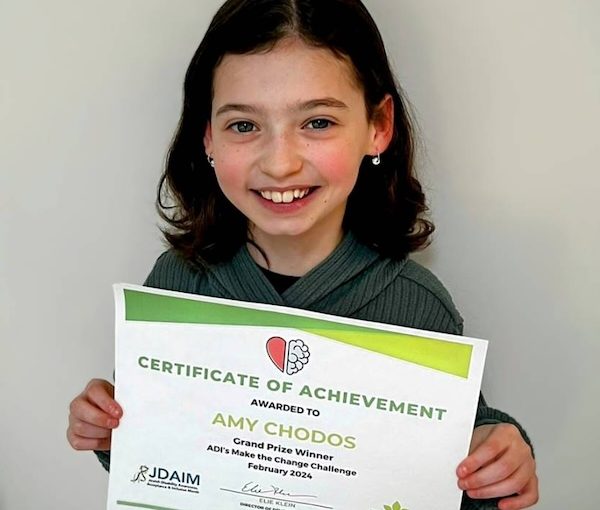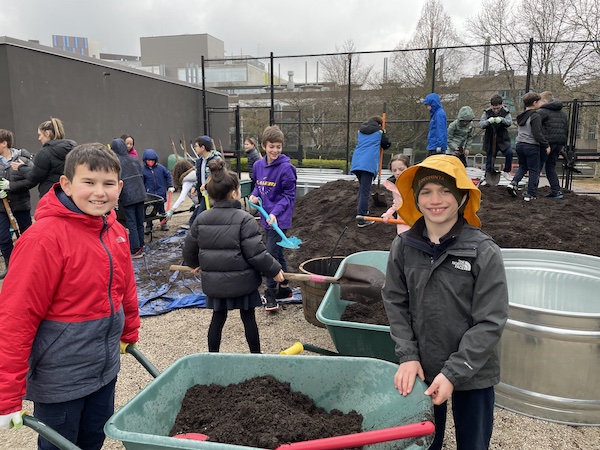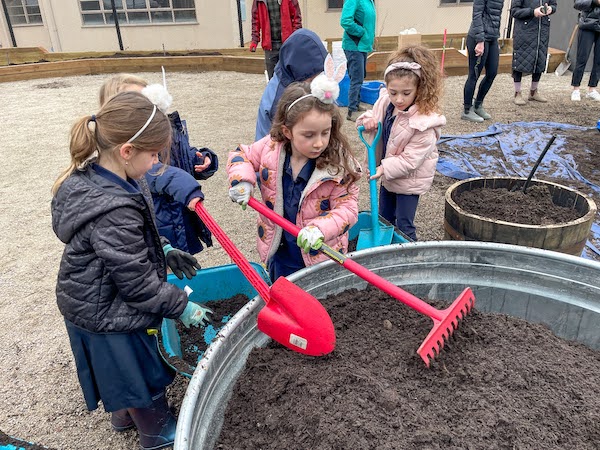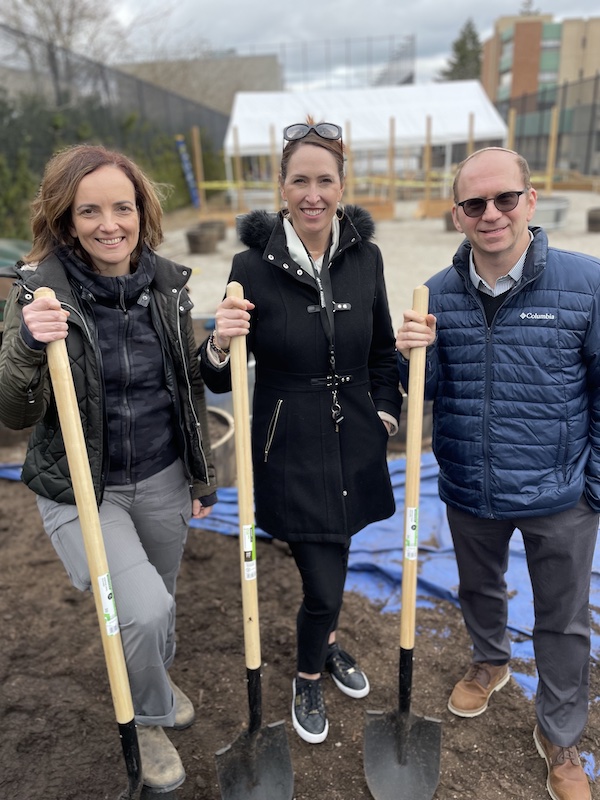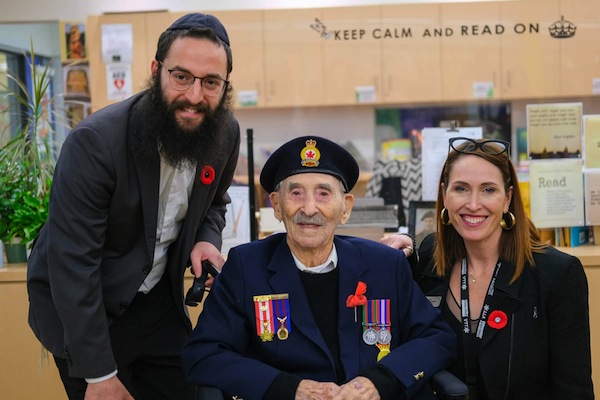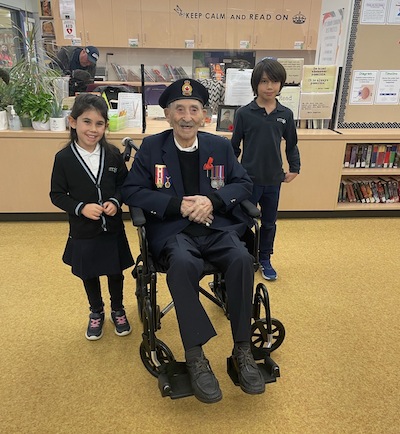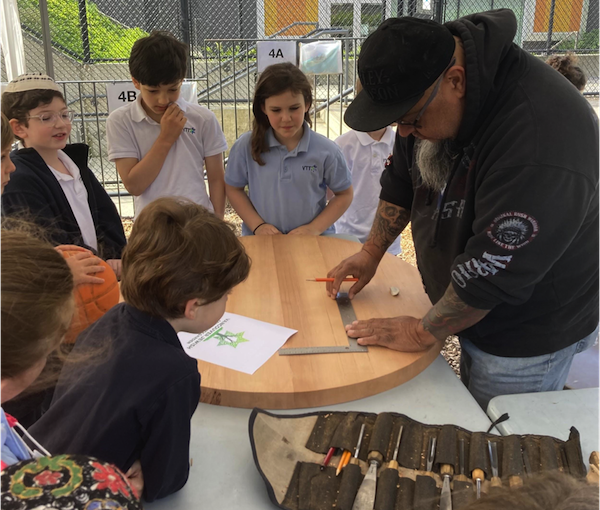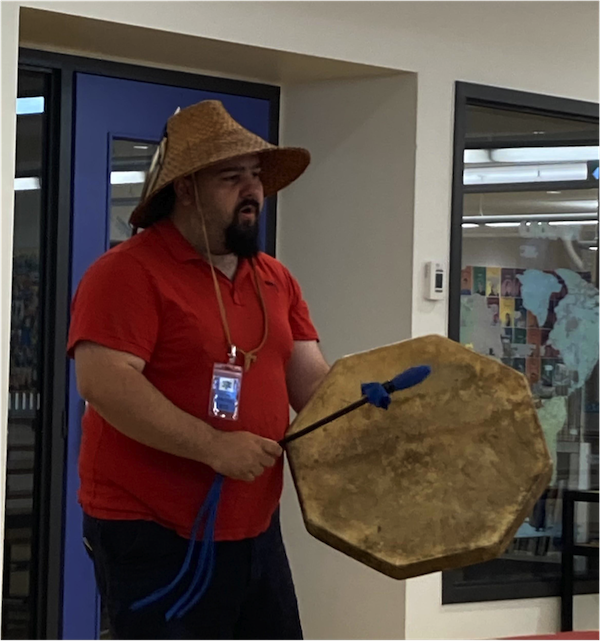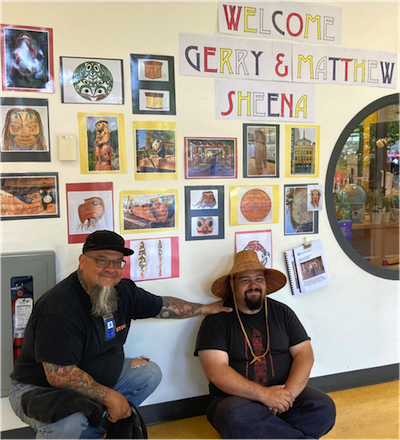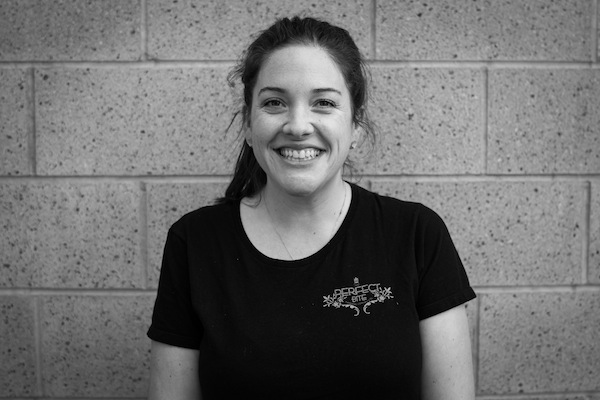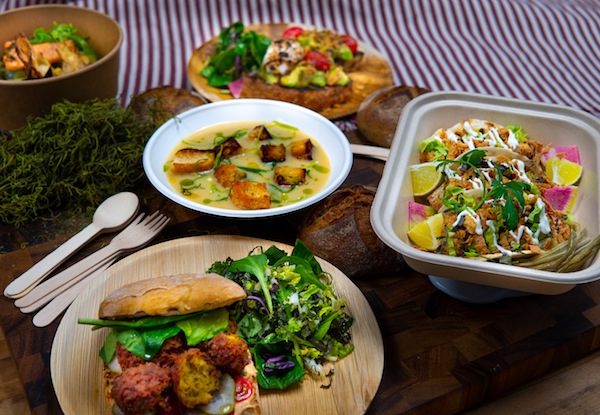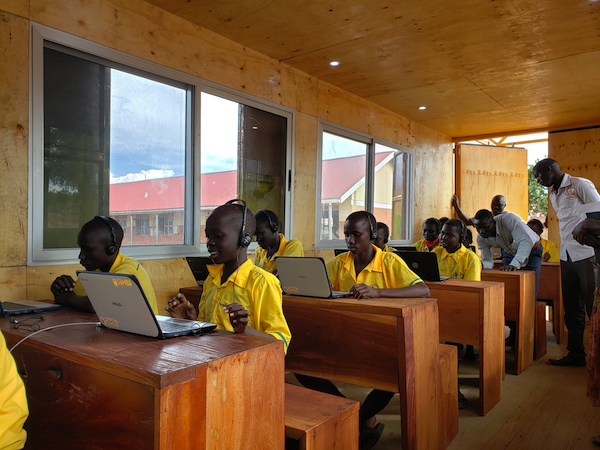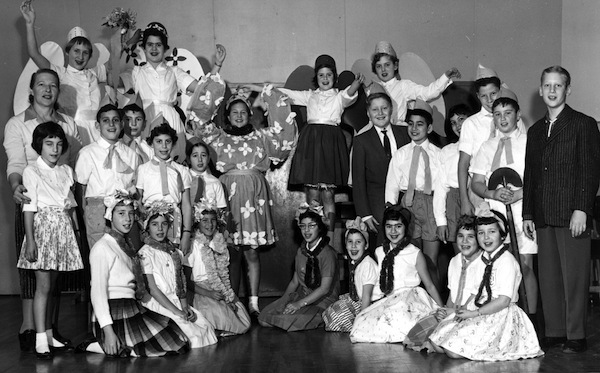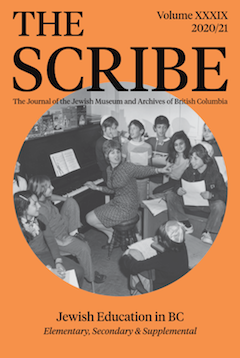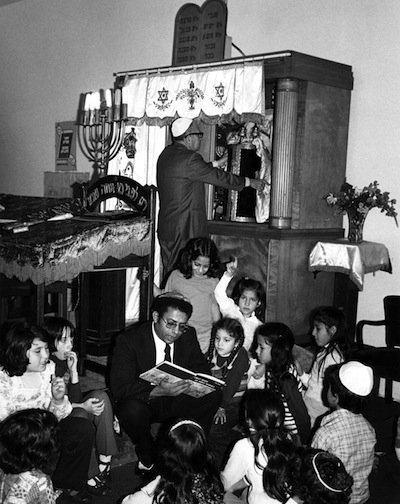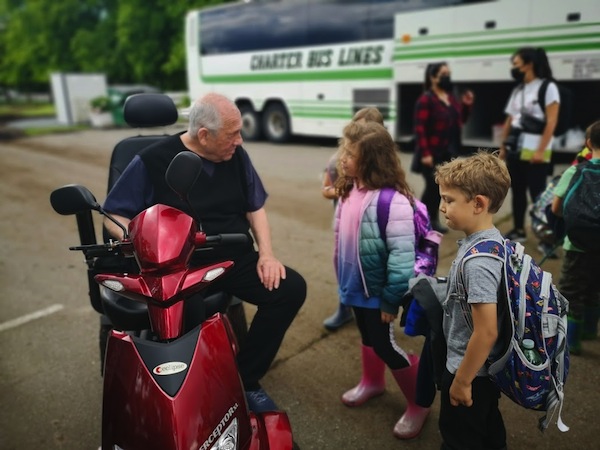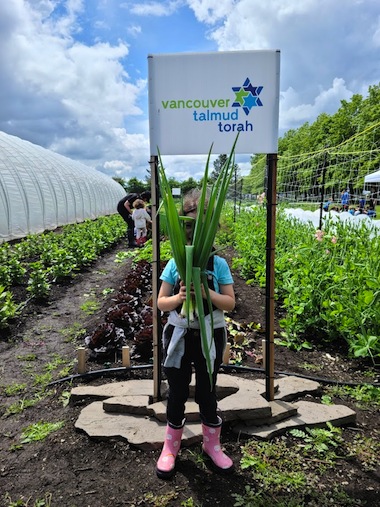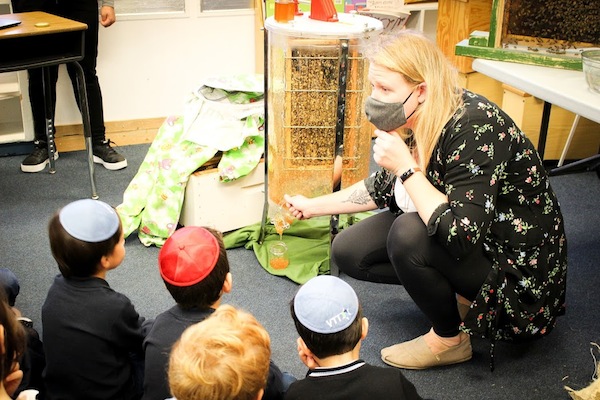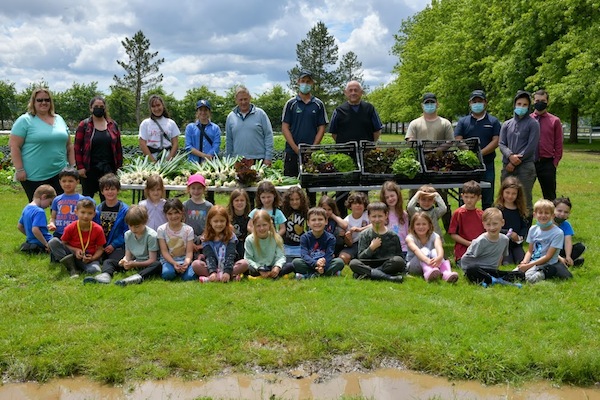Amy Chodos, a Grade 4 student from Vancouver Talmud Torah, was chosen as the winner of ADI’s fourth annual Make the Change Challenge. (photo from ADI)
In its fourth year, ADI’s Make the Change Challenge STEM accessible design contest drew more than 254 entries from students across North America, but Vancouverite Amy Chodos secured the contest’s $1,000 grand prize by envisioning a simple application that can make the world a more accessible place for people struggling with ADHD and other neurodevelopmental disorders.
Run by ADI (adi-israel.org), Israel’s network of specialized rehabilitative care for those touched by and living with disability, to mark Jewish Disability Awareness, Acceptance and Inclusion Month (#JDAIM) in February, the contest promotes “selfless STEM” and encourages students to hack the modern world to help people with disabilities overcome the challenges that hinder their independence and inclusion.
Chodos, a fourth-grade student from Vancouver Talmud Torah, drew from her own challenges in the classroom to conceive of the Step-O-Maker, an app that uses artificial intelligence to record complex spoken instructions and then break them down into easy-to-follow checklists that can guide students through an entire process.
“As someone with ADHD, I find that starting tasks is often overwhelming, and I need help to understand where to begin. My mother teaches children with hearing loss, and I realized that an app like this could also help her students in the classroom,” explained Chodos. “I wanted to create something that could help a lot of people by making listening and understanding easier in class and making learning more fun and enjoyable.”
Instead of developing prototypes, contest entrants were asked to prepare compelling presentations that clearly explain how the original solutions they are envisioning would solve the persistent accessibility issues they choose to tackle. Chodos prepared a PowerPoint presentation that clearly explained her challenges and brought her inspired solution to life.
“Year after year, our ADI Bechinuch (ADI in Education) disability inclusion programming spotlights the inaccessibility of our world and our communal responsibility to make a change,” said Elie Klein, ADI’s director of development for the United States and Canada. “From November through February, students from our partner schools across North America become true agents of change while researching and developing original accessible design ideas in order to participate in our STEM contest, and the results are always awe-inspiring.
“We are so impressed by Amy’s poise and creativity, and the brilliant simplicity of her idea,” continued Klein. “But it’s clear to me that this exceptional young inventor always saw beyond the contest. At just 9 years old, Amy is on a mission; she genuinely wants to see this app developed so it can start to help people. This kind of leadership is what ADI Bechinuch is all about.”
More than 40 Jewish schools across North America used the ADI Bechinuch programming this year, employing the in-class activities, virtual tours and STEM contest to encourage the next generation of Jewish leaders to see the world through the eyes of others.
On Feb. 25, ADI’s panel of experts, including members of ADI’s professional staff, innovation journalists and specialists in the field of accessible design, met with the contest’s top-five finalists and their parents and teachers via Zoom to discuss the entries in greater detail. Following an uplifting discussion, the proceedings concluded with Amy Chodos being chosen as the contest winner and presented with the $1,000 prize, a gift from the Avraham and Esther Klein Young Entrepreneurs Fund.
To learn more about ADI, visit adi-israel.org.
– Courtesy ADI
* * *
Louis Brier Home and Hospital and Weinberg Residence (LBHH&WR) has officially been recognized as a 2023 Nonprofit Employer of Choice (NEOC) Award Recipient for its commitment to providing an exceptional work life experience for its employees.
“I am so proud and grateful for us to have received this recognition award, now four years in a row, from 2020 to 2023. It’s incredible how much our work culture has improved over the last four years,” said Loren Tisdelle, director of human resources in a special announcement held during the organization’s monthly Louis Brier LIFE Day. “The ‘Louis Brier LIFE’ is felt as soon as you walk into the building. Every year, we offer new and exciting programs while improving upon our current engagement initiatives. Last year, we launched Take Our Kids to Work Day and a masquerade ball, which were enormous successes. Engagement, inclusion and appreciation continue to be hallmarks of our work life at LBHH&WR.
“This is our award. Each and every employee makes LHBB&WR what it is today,” said Tisdelle. “We all come to work to make a difference, we actively engage in work life and, as a community, we make working at LBHH&WR a second-to-none employment experience.”
The LBHH&WR leadership team and its board of directors recognize the contributions and impact of its employees towards achieving the organization’s mission and vision to become a centre of excellence. It is through their hard work and dedication that the organization continues to make a positive impact on residents and families while upholding the positive reputation LBHH&WR has as a home and an employer.
More information about the NEOC Awards can be found at neoc.ca.
* * *
On April 2, just as National Autism Acceptance Month begins, Rowman & Littlefield will release the paperback edition of the multi-award-winning parenting and travel guide Traveling Different: Vacation Strategies for Parents of the Anxious, the Inflexible and the Neurodiverse by Dawn M. Barclay.
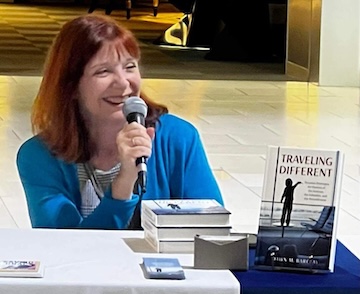
In 2023, the hardcover and e-book edition won the Lowell Thomas Gold Award (guidebook category) from the Society of American Travel Writers Foundation, garnered first prize in the Maxy Awards (inspirational/self-help category), was a finalist in the Best Indie Book Awards in both the travel and parenting categories, and won honourable mention in ASJA Arlene Awards for Books that Make a Difference. Traveling Different also received a starred review in August 2022 from Library Journal, who called the book “an essential read, not only for parents of autistic or otherwise neurodivergent children but for all families.”
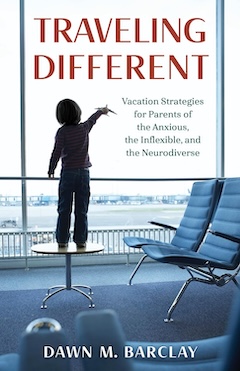 In Traveling Different, Barclay presents travel strategies and anecdotes from a range of sources. The heart of the book outlines suggested itineraries for spectrum families as well as venues that cater to the unique special interests that are characteristic of individuals with invisible disabilities, culminating with a guide of travel agents who specialize in special needs travel and lists of organizations that advocate for special needs families. (For more on the book, see jewishindependent.ca/invest-the-time-to-prepare.)
In Traveling Different, Barclay presents travel strategies and anecdotes from a range of sources. The heart of the book outlines suggested itineraries for spectrum families as well as venues that cater to the unique special interests that are characteristic of individuals with invisible disabilities, culminating with a guide of travel agents who specialize in special needs travel and lists of organizations that advocate for special needs families. (For more on the book, see jewishindependent.ca/invest-the-time-to-prepare.)
“I’m thrilled the book will now be available in paperback, which makes it more affordable for all families,” said Barclay, who has appeared on close to 100 podcasts and interviews on video, radio and television since the book’s initial launch. Barclay prints updates on her Traveling Different website (travelingdifferent.com), as well as exclusive content on medium.com.
– Courtesy Rowman & Littlefield

